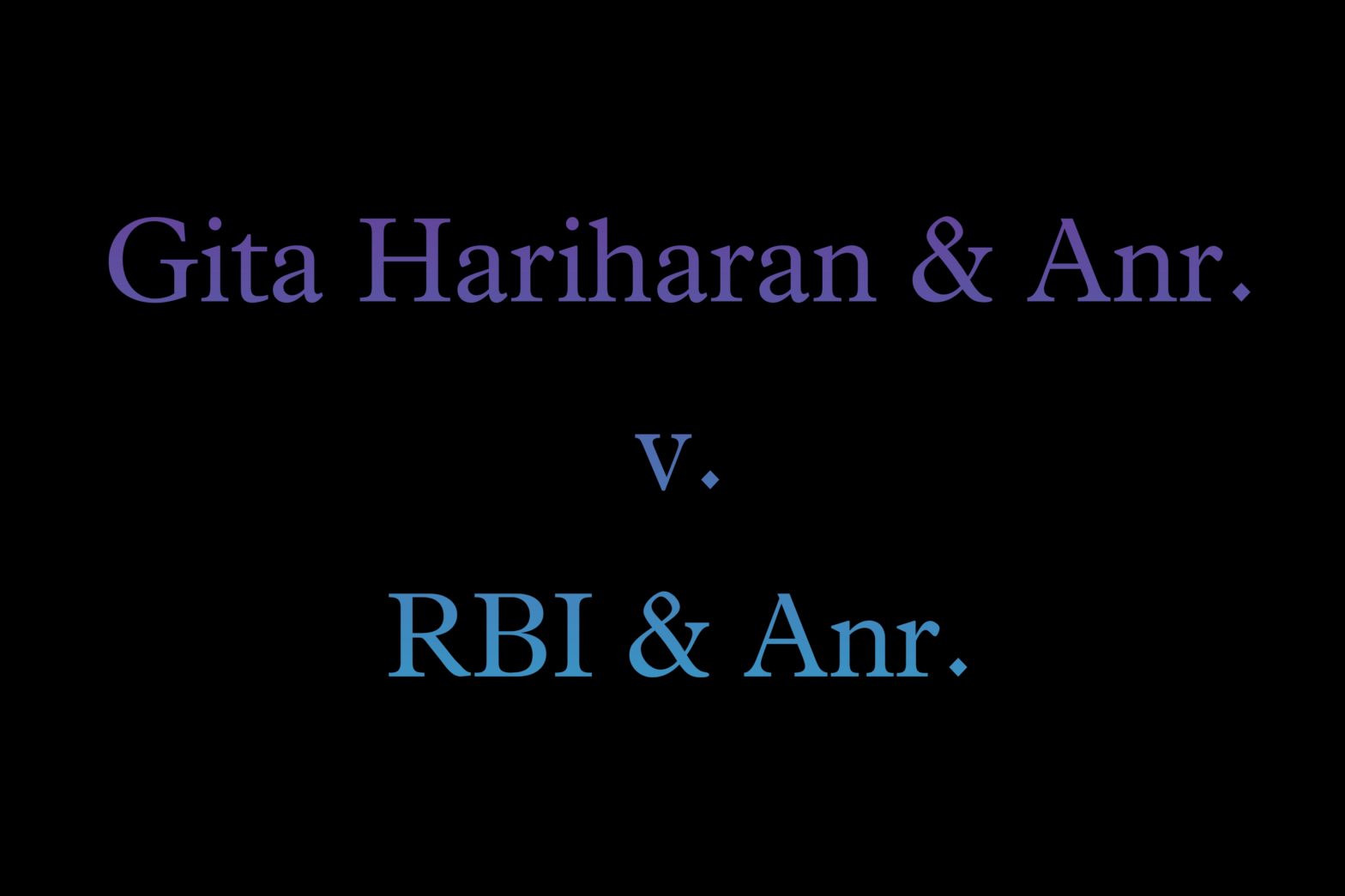Case Name: Ms. Githa Hariharan & Anr. vs Reserve Bank of India & Anr.
Citation: AIR 1999, 2 SCC 228
Date of Judgement: 17-02-1999
Parties Involved: Githa Hariharan & Anr. and Reserve Bank of India & Anr.
Facts
The petitioner and Dr. Mohan Ram were married in Bangalore in 1982 and had a son in July 1984. In December 1984 the petitioner applied to the Reserve Bank of India (RBI) for a 9% Relief Bond to be held in the name of the son indicating that she, the mother, would act as the natural guardian for investments. RBI returned the application advising the petitioner either to produce an application signed by the father or a certificate of guardianship from a competent authority in her favour to enable the bank to issue bonds as requested.
This petition was related to a petition for custody of the child stemming from a divorce proceeding pending in the District Court of Delhi. The husband petitioned for custody in the proceedings. The petitioner filed an application for maintenance for herself and the minor son, arguing that the father had shown total apathy towards the child and was not interested in the welfare of the child. He was only claiming the right to be the natural guardian without discharging any corresponding obligation. On these facts, the petitioner asks for a declaration that the provisions of Section 6(a) of the Hindu Minority and Guardianship Act of 1956 along with Section 19(b) of the Guardian Constitution and Wards Act violated Articles 14 and 15 of the Constitution of India.
Issues
The two main issues are as follows:
- What is the constitutionality of the provision as contained in Section 6(a) of the Hindu Minority and Wards Act, 1956?
- What is the constitutionality of the provision as contained in Section 19(b) of the Guardian Constitution and Wards Act, 1890?
Judgment

It held that both the father and mother are natural guardians of a minor Hindu child, and the mother cannot be said to be a natural guardian only after the death of the father as that would not only be discriminatory but also against the welfare of the child, which is the legislative intent of HMGA, 1956.
Rationale
A rigid insistence of strict statutory interpretation may not be conducive for the growth of the child, and welfare being the predominant criteria, it would be a plain exercise of the judicial power of interpreting the law to be otherwise conducive to a fuller and better development and growth of the child.
Comment
This case is important because it established for the first time that a natural guardian referred to in the HMGA, 1956 can be a father or a mother: whoever is capable of and available for taking care of the child and is deeply interested in the welfare of the child, and that need not necessarily be the father.

It’s too much need full for our case studies